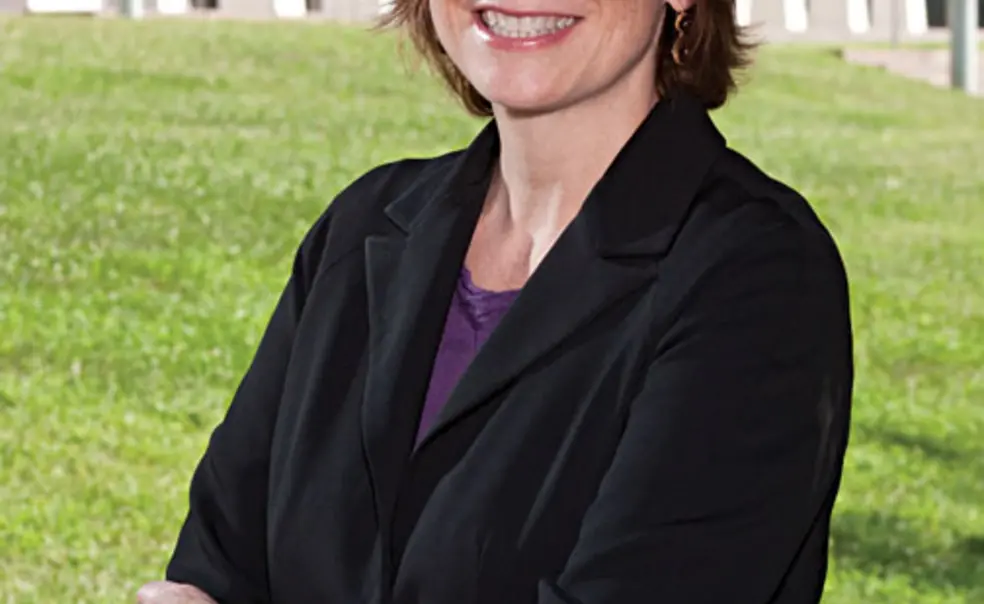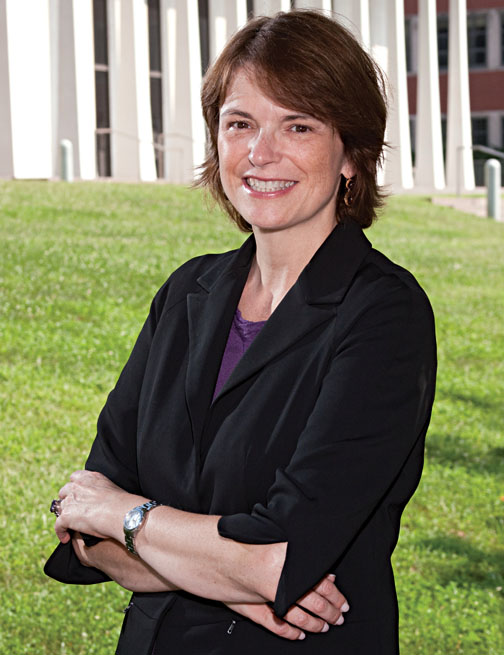A moment with ... Dean Christina Paxson
Economics and public affairs professor Christina Paxson became dean of the Woodrow Wilson School July 1, taking the reins of a school that has broadened its offerings dramatically over the last decade. She spoke to PAW in August in her new corner office at Robertson Hall.
The Wilson School remains Princeton’s only selective major, and in June, President Tilghman told The Daily Princetonian that the policy is “one of the things that should be reconsidered from time to time.” Do you plan to look at it?
It’s something I do plan to look at, and I think it’s something that has to be done carefully, with a lot of conversation with faculty, current students, and alumni. I come in with a very open mind. I am not convinced that we need a selective program or that the program would be worse if it were not selective. I tend to like self- selection: You design a program so that the students who are the right students for the program are the ones who choose to be in it. Princeton itself is so selective anyway that it’s not like there are weak students here whom we’re trying to screen out. No decisions have been made on this, but I think it’s something that we really need to examine carefully.
What excites you most about your new job?
I really like to put together new programs that serve multiple purposes. Just to give an example, I’ve put a lot of work into the new Grand Challenges program at the University, which is concerned with health, environmental issues, and water in Africa. The thing that I love so much about this program is that it has a research piece, it has a teaching piece, and it’s getting faculty members engaged with students doing work on really important issues all around the world. ... You have a chance to make a bigger impact when you can put things together like that, and one of the things I’m really excited about doing in the Woodrow Wilson School is building more links between the school and the rest of the University.
Over the past 10 to 20 years, we’ve really broadened [the faculty]. We have people from psychology, sociology, the natural sciences, and engineering. We’re able to make contributions to education and research that we couldn’t make 10 years ago. Now, I think economics and political science are incredibly important, and the number of faculty members in these disciplines has not declined. But we’ve added an extra layer on top of that.
Since July, you have been speaking with faculty and staff at the Woodrow Wilson School. Have you received any memorable advice?
Yes, I’ve received advice. But what has impressed me the most is how sensible and unselfish people have been when discussing the budget cuts that we’re inevitably going to have to make because of the economic situation.
What steps has the Wilson School taken to begin its belt-tightening?
Mark Watson, who was the interim dean last year, worked with a committee and, I think, did a very careful and sensible job in making the cuts that needed to be made. A lot of programs are having to do just a little bit less of everything — [fewer] events, speakers, visiting fellows. Students may notice fewer cookies at afternoon seminars, and actually, speaking of belt-tightening, that’s probably a good thing. What I hope to do is to have fewer but higher-quality events — to preserve the very best.
Several Wilson School faculty — including your predecessor, Anne-Marie Slaughter ’80 — have joined the Obama administration, which speaks well for Princeton but also depletes teaching and research, temporarily at least. How will you address these losses?
Well, their absences are temporary. I think we will have a number of people back by next [academic] year. ... But in the meantime, you make do. You find visitors to fill in. You get people to pitch in. Cecilia Rouse, who is at the Council of Economic Advisers in the White House, normally teaches one of the intermediate microeconomics courses for Woodrow Wilson School graduate students. I’m going to teach it this year.
Interview conducted and condensed by Brett Tomlinson













No responses yet